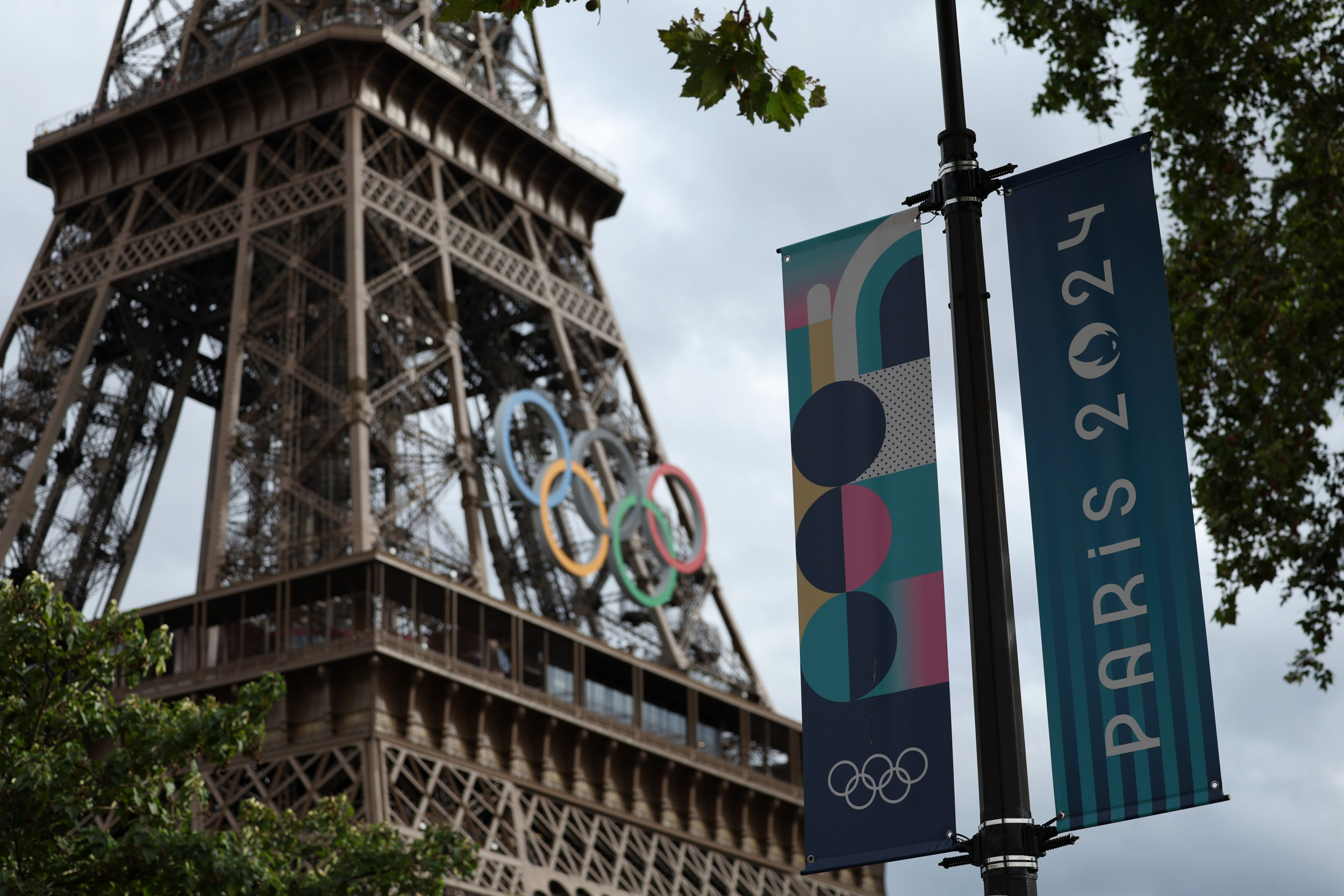The 2024 Olympics, set to kick off in Paris on Friday, will pit nation against nation amid a particularly fraught geopolitical landscape.
The Russia-Ukraine war, the Israel-Palestine conflict, as well as tensions between the U.S. and Iran, and a rocky relationship between the U.S. and China, have made the world stage a complicated place at present.
Nevertheless, athletes from countries around the globe will be expected to put international disputes aside and demonstrate good sporting behavior in Paris. And Russian and Ukrainian athletes will be participating, meaning they may well come face-to-face in some disciplines—even though, technically, Russia has been banned from the Games.
Athletes from Russia will be competing at the Olympics, but as “Individual Neutral Athletes” (AIN), after organizers banned the country from the Games following President Vladimir Putin‘s invasion of Ukraine. Consequently, the Russian flag has been banned from venues, Russian athletes will not be able to wear national kit and the country’s national anthem is forbidden. Russian athletes who win medals will not be included on the official Paris 2024 medal table.
Alex Broadway/Getty Images
In addition, the International Olympic Committee (IOC) has also ruled that Russian athletes participating as individuals must not have actively supported the war and nor may they have any links to the Russian military. No Russian teams are allowed to compete and there will be no Russian track and field competitors because the sport’s governing body World Athletics has banned them. Athletes from Belarus, which supports Russia’s invasion, will be subject to the same sanctions.
The restrictions will dramatically shrink the participation of Russian competitors at the Games.
At the Tokyo 2020 Games there were 335 Russian athletes; at Paris, there will be just 15, according to the BBC. Some Russian athletes had accepted a place at the Games only for their sport’s governing bodies to reject their invitations, Olympic organizers said. Russia’s weightlifting federation said it blamed the “unsportsmanlike selection principle” for its decision to turn down invitations for 10 of its athletes, nine of whom had originally agreed to take part as individuals.
“If the IOC’s artificial conditions are designed to cut off the best Russian athletes and portray at the Olympics that Russian sport is dying, then you need to decide whether to go there at all,” Putin told his country’s sportsmen and sportswomen last year.
He accused the IOC of “ethnic discrimination,” a charge furiously denied by Olympic officials.
“Participation in the Olympic Games is by no means a human right,” they said, adding that the restrictions “are a reaction to the breach of the Olympic Charter by the Russian and Belarusian governments. We firmly reject the accusations being made that these measures constitute ‘ethnic discrimination.'”
Newsweek has reached out by email to representatives of the Ukrainian government seeking comment.
Russians who are currently due to compete at the 2024 Olympics include former world number one tennis star Daniil Medvedev, along with six other tennis players, three canoeists, three road cyclists, one trampoline gymnast and one swimmer.
Ukraine is also reportedly due to have athletes competing in tennis, gymnastics, canoeing, cycling and swimming.
When asked what would happen in situations when Ukrainian athletes found themselves competing against Russians, the IOC has previously said: “We are glad that they will be given this opportunity [to compete in the Games], and at the same time we are aware of the difficult inner conflicts they may have, given the aggression against their country. Therefore, we encourage International Federations to handle situations involving Ukrainian and Individual Neutral Athletes with the necessary degree of sensitivity. We continue to stand in full solidarity with the Ukrainian athletes and the Olympic community of Ukraine.”
It’s not the first time that Russia has faced an Olympic ban.
The country was initially prohibited from competing in Olympic Games in 2018 after an investigation discovered the Russian state had been complicit in the “systematic” doping of athletes in order to cheat. Several Russian athletes were banned for life from the Olympics while others had medals stripped from them, but those who could prove they were “clean” were allowed to compete. They were only able to take part under the banner of the “ROC” (which stood for the Russian Olympic Committee) and could not compete for Russia itself.
Uncommon Knowledge
Newsweek is committed to challenging conventional wisdom and finding connections in the search for common ground.
Newsweek is committed to challenging conventional wisdom and finding connections in the search for common ground.
